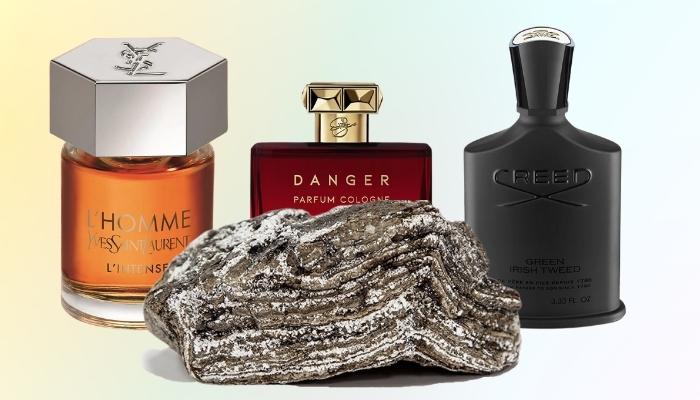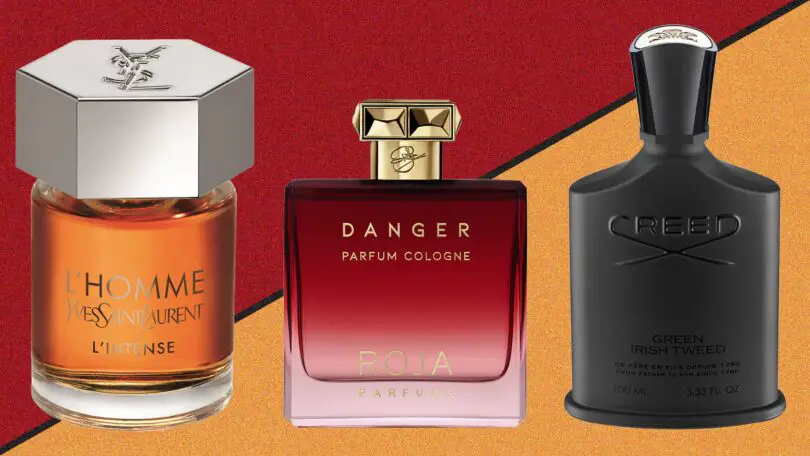Yes, ambergris is still used in perfume today. It adds a unique and luxurious scent to fragrances.
Ambergris, a rare and prized substance derived from the secretion of sperm whales, has long been used as a fixative in perfumes. Its musky and sweet aroma adds depth and longevity to fragrances. Despite controversy surrounding its sourcing, with some countries banning the use of ambergris due to ethical concerns, it continues to be used by perfumers who value its distinctive olfactory properties.
The use of ambergris in perfume dates back centuries, and its reputation as a highly desirable ingredient remains intact. Fragrance enthusiasts and collectors appreciate its rarity and the unique character it imparts to perfumes.
The History Of Ambergris In Perfume
Ambergris, a fascinating substance used in perfume, has a rich history steeped in tradition. Throughout ancient civilizations, ambergris was highly valued for its unique fragrance. It played a significant role in perfumery, with its importance extending beyond its scent. Symbolizing luxury, wealth, and status in various cultures, ambergris became a sought-after ingredient.
Whether used by the Egyptians, Greeks, or Romans, it held a special place in perfumes for its ability to enhance and preserve other aromatic ingredients. With its distinct marine and earthy notes, ambergris added depth and complexity to fragrances. The allure of ambergris persists even today, as perfume enthusiasts continue to appreciate its historical significance and intricate role in scent creation.
As we delve into the captivating history of ambergris in perfume, we uncover the secrets behind its enduring appeal.
The Composition And Characteristics Of Ambergris
Ambergris, a valuable ingredient used in perfume, possesses unique qualities and a captivating aroma profile. This substance, formed in the digestive system of sperm whales, originates from their diet of giant squid. Over time, the whale’s stomach acids transform the squid beaks into a waxy and fragrant substance.
Harvested predominantly from shores and beaches, ambergris is sought after for its rarity and remarkable olfactory properties. Its composition consists of ambrein, responsible for its enchanting fragrance, as well as a host of other organic compounds. As a result, ambergris adds depth, longevity, and fixative qualities to perfumes.
Renowned for its ability to enhance and stabilize fragrance notes, this natural substance continues to be used by perfumers striving to create alluring scents that stand the test of time. So, is ambergris still utilized in modern perfumery? The answer is a resounding yes.
Modern Usage Of Ambergris In Perfume
Ambergris, a substance produced by sperm whales, is still being used in modern perfume. Its role in the fragrance industry has evolved over time. Today, it is primarily used as a natural fixative that helps to prolong the scent of perfumes.
Additionally, ambergris adds depth and complexity to fragrances, giving them a unique and luxurious character. Its musky, earthy aroma blends well with other notes, creating a harmonious composition. Despite the controversy surrounding its sourcing, ambergris continues to be favored by perfumers for its olfactory properties.
The use of ambergris in perfumes is both a nod to tradition and a statement of quality, appealing to those who appreciate the allure of timeless scents. As fragrance trends shift towards natural and sustainable ingredients, ambergris remains a sought-after component in the contemporary perfume industry.
The Controversy Surrounding Ambergris In Perfume
Ambergris, a substance derived from the digestive system of whales, has long been prized in perfumery. However, there is growing controversy surrounding its use. Ethical concerns arise from the harvesting process, as sourcing ambergris involves whaling and the potential harm to marine ecosystems.
To address these issues, legal regulations and sustainability measures have been implemented. Despite this, the use of natural ambergris in fragrance remains a topic of debate. Some argue for alternatives, such as synthetic substitutes or plant-based ingredients, to reduce dependence on animal-derived substances.
These alternatives not only bypass the ethical concerns related to ambergris, but also offer greater control over the scent profiles in perfumes. As consumers become more conscious of sustainability and animal welfare, the fragrance industry must continue to explore alternative ingredients and production methods to meet evolving demands.
The controversy surrounding ambergris serves as a reminder of the ongoing need for responsible practices in the world of perfumery.
Ambergris Substitutes And Synthetic Replicas
Ambergris, a precious substance once sought after in perfumes, has seen a decline in usage. In its place, alternative ingredients, both natural and synthetic, have emerged. Synthetic replicas have been developed to mimic the unique scent of ambergris, offering a cruelty-free and cost-effective option.
However, these replicas still face challenges in replicating the complexity of the original. Natural substitutes like ambroxide and ambrein have gained popularity, providing a similar fragrance profile to ambergris. The effectiveness and acceptance of these substitutes vary among perfumers and consumers, with some embracing the alternatives while others remain loyal to the real thing.
As the demand for cruelty-free and sustainable options continues to grow, the use of ambergris substitutes and synthetic replicas may become more prevalent in the perfume industry. Despite this shift, the allure and mystique surrounding the original ambergris still linger, captivating those who appreciate its rare and enchanting essence.

Credit: 10fragrances.com
Audiences’ Perception And Preferences On Ambergris
Ambergris, a substance produced in the digestive system of sperm whales, has long been used in perfume. Consumers’ perception of ambergris in fragrances plays a crucial role in their preferences. Understanding their views can provide valuable insights into the market.
Additionally, analyzing consumers’ preferences towards natural versus synthetic ambergris is essential. Some people value the authenticity and perceived quality of natural ingredients, while others find synthetic alternatives more appealing. Moreover, the transparency and sustainability of the perfume industry have a significant impact on consumer purchasing decisions.
Ethical and eco-friendly practices are gaining traction among buyers. As a result, brands that prioritize transparency and sustainability may attract a larger customer base. In conclusion, by comprehending audiences’ perception and preferences regarding ambergris, fragrance manufacturers can adapt and cater to their target market more effectively.
The Future Of Ambergris In The Fragrance Industry
Ambergris, once a highly sought-after ingredient in the fragrance industry, is facing uncertain times. As the demand for sustainable practices grows, exploring alternatives to traditional ambergris sourcing becomes essential. Potential advancements in synthetic replicas could offer a solution, replacing the need for natural ambergris.
Sustainability concerns, including animal welfare and environmental impact, are driving the industry to consider these alternatives. However, the future role of ambergris in fragrance production is still uncertain. While synthetic replicas may provide a sustainable option, the unique qualities and olfactory properties of genuine ambergris cannot be fully replicated.
As the fragrance industry evolves, the exploration of sustainable practices, including sourcing alternatives to ambergris, will play a significant role in shaping its future. The search for balance between sustainability and maintaining the art of perfumery continues, posing exciting challenges and opportunities for the industry.
Frequently Asked Questions For Is Ambergris Still Used In Perfume
When Did They Stop Using Ambergris In Perfume?
Ambergris use in perfume was stopped in recent years due to conservation concerns.
Is Ambergris Legal In Perfume?
Yes, ambergris is legal in perfume and commonly used as a fragrance ingredient.
What Replaced Ambergris?
Synthetic alternatives have replaced ambergris in various products.
Does Gucci Perfume Have Ambergris?
Gucci perfume doesn’t contain ambergris, ensuring a unique fragrance experience. Enjoy the scent worry-free.
Conclusion
The use of ambergris in perfume continues to be a controversial and highly debated topic. While the substance was once a popular and prized ingredient, the shifting attitudes towards animal cruelty and sustainability have led to a decline in its use.
With the advent of synthetic alternatives and the growing demand for ethically sourced ingredients, many perfume brands have chosen to discontinue or limit the use of ambergris in their formulations. However, it is important to note that there are still some perfumers who believe that the unique properties of ambergris cannot be replicated, and therefore continue to use it in their creations.
Ultimately, the future of ambergris in perfume lies in the hands of consumers, who have the power to shape the industry’s practices and preferences. Whether it will continue to be a sought-after ingredient or fade into obscurity remains to be seen.








